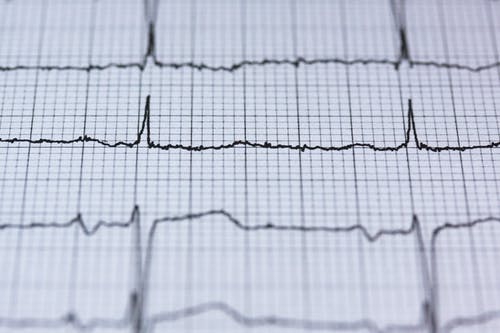Refeeding syndrome, most likely yet another one of the many horrible things I’d be blissfully oblivious to the existence of, let alone the experience of, had anorexia nervosa never entered my life.
What an alternate reality that would have been.
And because you’ve clicked on a blog about refeeding syndrome in eating disorder recovery, I’m going to hedge a bet that refeeding syndrome is unfortunately not something you are blissfully ignorant to the existence of either…
Whether it is a term you’ve heard once or you feel you have a good grasp of what refeeding syndrome is you will likely benefit from reading on because in this blog I’m going to take the big, scary topic of refeeding syndrome and simplify it into the most important things you need to know.
Including what refeeding syndrome is, why it is matters, how to know if you are at risk, signs and symptoms you may be experiencing refeeding syndrome as well as what you can do to decrease your risk of developing refeeding syndrome and make your recovery safer.
Let us begin with…
What is Refeeding Syndrome?

Refeeding syndrome is the term used to describe a series of bodily responses including electrolyte and fluid shifts, in reaction to the relatively rapid reintroduction of nutrition after a period of undernutrition.
What does that mean?
In practical terms what this means is when a human being eats inadequately for a period of time long enough to develop malnutrition there are a lot of physical (and psychological) changes that occur in order to adapt to this state of malnutrition or starvation.
Some of the most notable changes our body goes through during early starvation or fasting is a switch from using carbohydrates (glucose) as a primary fuel source to using fat and protein as the main sources, a 20-30%1 drop in basal (resting) metabolic rate and because our body ultimately also wants to prevent muscle wastage there is corresponding drop in gluconeogenesis (the creation of glucose from non-carbohydrate substances including protein).
If starvation or malnutrition is prolonged important minerals, vitamins and nutrients begin to become depleted. The ones that are most significant to refeeding syndrome are phosphorus, potassium, magnesium, thiamine, glucose, sodium and nitrogen.
During refeeding and in particular the reintroduction of carbohydrates and the consequent increase in glucose in the bloodstream the secretion of the hormone insulin is increased which stimulates glycogen, fat and protein synthesis. The synthesis of glycogen, fat and protein are processes that require the use of vitamins and minerals which are already lacking, depleting them further.
Insulin stimulates the absorption of potassium and glucose into cells. Magnesium, phosphate and water also enter the cells. These nutrients are already depleted in the serum and as they enter the cells and their concentration in the serum decreases further and in combination with the rapid rise in metabolic rate (due to the reintroduction of food) the clinical features of refeeding syndrome arise.
There is a lot to refeeding syndrome and this explanation is by no means a comprehensive insight into what is going on, but this is a good start.
If you felt overwhelmed reading this, it’s ok because you actually don’t need to know any of the nitty gritty of what is going on in order to reintroduce and increase your food intake safely.
It’s really not worth getting bogged down in the details of which electrolyte goes where.
At the end of the day one of the most important thing you need to do if you are in recovery from an eating disorder is to work with an eating disorder dietitian.
Why Refeeding Syndrome Matters

The bodily responses described above are “normal” given the extreme circumstance of malnutrition and starvation but despite being “normal” they are potentially life threatening.
Therefore, to say refeeding syndrome matters is an understatement.
If you’re venturing into recovery from an eating disorder refeeding is most certainly something you have to be aware of but as I mentioned being aware of and acting accordingly is a long way from being an expert on it. Which is why I encourage you to get in contact with and work with an eating disorder dietitian because they can help you increase your food intake safely.
Signs and Symptoms of Refeeding Syndrome2
The list of symptoms associated with refeeding syndrome overlap with many of the symptoms of starvation and include;
- Fatigue
- Weakness
- Confusion
- Difficulty breathing
- High blood pressure
- Seizures
- Irregular heartbeat
- Edema
- Nausea and Vomiting
- Heart failure
- Coma
If you are experiencing any of these symptoms, they are serious. Please get help.
Who Is at Risk of Refeeding Syndrome?

Criteria from the guidelines of the National Institute for Health and Clinical Excellence for identifying patients at high risk of refeeding problems (level D recommendations*)3
Either the patient has one or more of the following:
- Body mass index (kg/m2) <16
- Unintentional weight loss >15% in the past three to six months
- Little or no nutritional intake for >10 days
- Low levels of potassium, phosphate, or magnesium before feeding
Or the patient has two or more of the following:
- Body mass index <18.5
- Unintentional weight loss >10% in the past three to six months
- Little or no nutritional intake for >5 days
- History of alcohol misuse or drugs, including insulin, chemotherapy, antacids, or diuretics
Hypophosphatemia (low phosphate) is one of the main features and risks of developing refeeding syndrome and given that malnutrition is one of the strongest risk factors for hypophosphatemia4. If you are living with an eating disorder it is likely you have some level of malnourishment. Therefore, if you are planning on reintroducing adequate levels of food, you are at risk of developing refeeding syndrome.
What Can I Do to Decrease My Chances of Developing Refeeding Syndrome During Recovery?

In a nutshell in a medical environment food and energy intake are gradually increased usually over a 7–10-day period, at a rate that is dependent on the level of refeeding syndrome risk.
At the same time, you would be supplemented with certain vitamins and electrolytes unless your blood levels of these are high before refeeding including thiamine, potassium, phosphate, calcium, and magnesium.
The precise calculations of what rate to reintroduce and increase food, energy and nutrient intake at are reasonably complicated and despite my opinion and experience being that extreme complications of refeeding are low because the complications are so extreme (including death) I would not recommend a DIY approach.
I would always recommend working with an eating disorder dietitian in recovery from an eating disorder.
Summary

With all I’ve learned through my own personal journey recovering from anorexia nervosa, experiencing refeeding syndrome more than once and all the people I’ve worked with during their recovery from eating disorders I have come to place far less value in the need for the patient to understand blood test results, refeeding syndrome or any of the other medical complications to be honest.
To a degree you need to have some level of understanding but overall, I think if you are getting caught up in the microdetails and wanting to understand exactly what is happening inside your body and exactly what is going to happen if you do this or don’t do that and have clear answers before you do any of the doing, this is simply detracting and distracting from the real work that you need to be doing.
The psychological work.
In recovery from an eating disorder yes, medical stabilisation is our primary concern, but the real long-term magic lies in the psychological work.
The psychological work that allows you to become you that lives without an eating disorder, easily, naturally, normally.
The psychological work that allows you to become the you that would have gone on living in oblivious bliss to the fact that such a thing as refeeding syndrome existed.
If you are to have any chance at becoming that person, the psychological work is where you need to invest.
Let the rest go…
With my whole heart I hope you found this information useful and inspiring.

Become Great. Live Great.
Bonnie.
Reference
- McCray S, Walker S, Parrish CR. Much ado about refeeding. Practical Gastroenterology2004;XXVIII(12):26-44.
- Refeeding Syndrome Symptoms and Warning Signs. Accessed on 20/09/2021. Available from: https://www.acute.org/resource/refeeding-syndrome-signs-symptoms.
- National Institute for Health and Clinical Excellence. Nutrition support in adults Clinical guideline CG32. 2006. www.nice.org.uk/page.aspx?o=cg032
- Camp MA, Allon M. Severe hypophosphatemia in hospitalised patients. Mineral & Electrolyte Metabolism1990;16:365-8.



